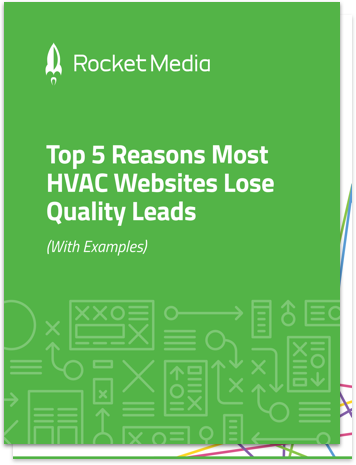PPC for HVAC Companies: A Beginner's Guide
on December 21, 2022
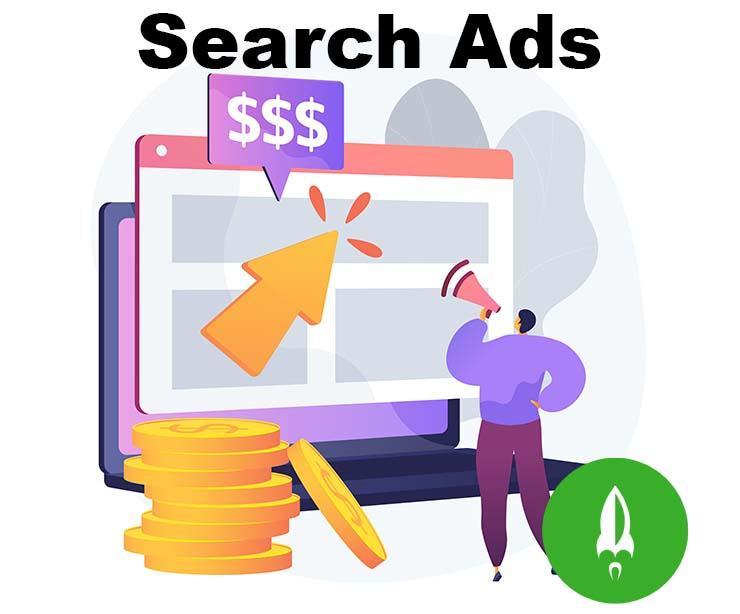
Learn how Paid Search Ads and Social Media Ads can help your HVAC business.
As an HVAC marketer or owner, you already know advertising is essential to growing your business. Without it, your company wouldn’t stand out from the competition or gain new customers.
You also know that we live in a digital world and that most people look for HVAC services online. This gives you a golden opportunity to reach potential customers directly when they need your services.
One of the most effective online advertising methods for HVAC companies is PPC, which stands for pay-per-click. If you’re new to PPC and unsure how to start a Paid Search campaign for your HVAC company, you’ve come to the right place. We’ll give you a quick PPC crash course to set you on the right path.
In this blog, you’ll learn the following:
- How PPC works
- Benefits of PPC
- PPC vs. other types of digital marketing
- How to get started with HVAC PPC
- Why you should partner with an HVAC PPC agency
Ready to Start Using PPC to Market Your HVAC Company? Contact Rocket Media!
You could spend hours learning the ins and outs of PPC or partner with experts who can help you seamlessly hit the ground running. Since 2003, we’ve helped HVAC, plumbing, electrical, and solar companies achieve stellar business results with our effective PPC campaigns.
Don’t believe us? See how we helped one company gain 307 new sales in 4 months through PPC, and learn more about the PPC services we offer. Call us today at (800) 339-7305 or book a free consultation below.
How PPC Works
PPC is an advertising model where you pay a fee each time a customer clicks on your online ad. You pay the fee to the platform where the ad appears. Search engines (like Google) and social networks (like Facebook) are the most common PPC platforms.
PPC ads look different depending on the platform. Below, we’ll explain the two most common types of PPC ads for HVAC companies.
Types of PPC Ads
Paid Search Ads function on a pay-per-click basis. Meanwhile, Social Media Ads require companies to pay for a specific amount of impressions. We'll cover both categories below.
Paid Search Ads
Paid Search Ads aim to drive traffic to your website by appearing on relevant search engine results pages (SERPs).
You can appear at the top of the page through Paid Search Ads and be the first company a customer sees when they search for services you offer.
Let’s try a little experiment. Go to Google and search for “AC repair.”
You should see a series of ads below the search bar that look something like this:

These are called Local Service Ads. These ads typically feature minimal content, such as the company name, star rating, and hours of operation. Companies must meet specific requirements and pay Google to have these ads.
Another type of Paid Search Ad is called an in-line ad. In-line ads also appear below the search bar, but they typically feature more company-specific content, as shown in the example below.

Although Google will be your main focus for PPC advertising (it has around 83% of the global market share), you can also choose to advertise on Bing (Microsoft Ads). Bing Paid Search Ads are similar to Google’s, as you can see below.

The main benefit of Paid Search Ads is that they can help you reach customers with immediate needs, such as a furnace repair or water heater installation. For this reason, Paid Search Ads are one of the most effective assets in an HVAC marketer’s toolkit.
For more information about PPC on search engines,check out our blog, “How Does Paid Search Work?”
Social Media Ads
Social Media Ads can also follow a similar model. They typically include a graphic or video with text, as seen in the example below.
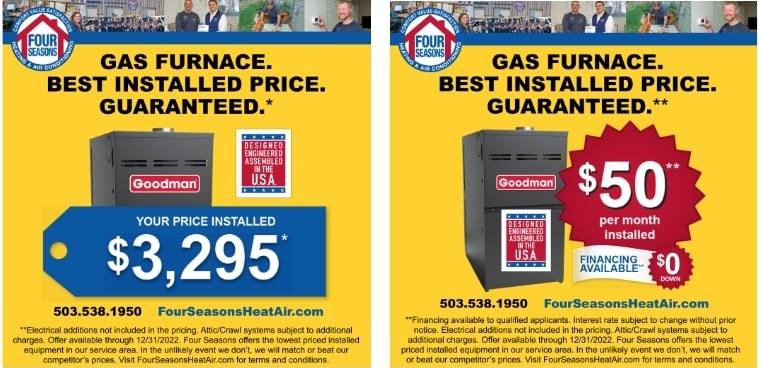
Like Paid Search Ads, Social Media Ads aim to drive customers to your website and take a specific action. For example, they may schedule a tune-up, take advantage of a seasonal promotion, etc.
But unlike Paid Search Ads designed to react to user search queries, social display ads require more of a "push" advertising approach. Instead of the customers coming to you, you have to interject yourself into their world.
Consequently, social ads don’t always drive business as quickly as paid search. Still, an effective social PPC campaign can help you reach specific target audiences, boost your brand recognition, and increase top-of-funnel brand awareness.
Now that you know the different types of PPC ads, let’s go over the main benefits of PPC.
Benefits of PPC
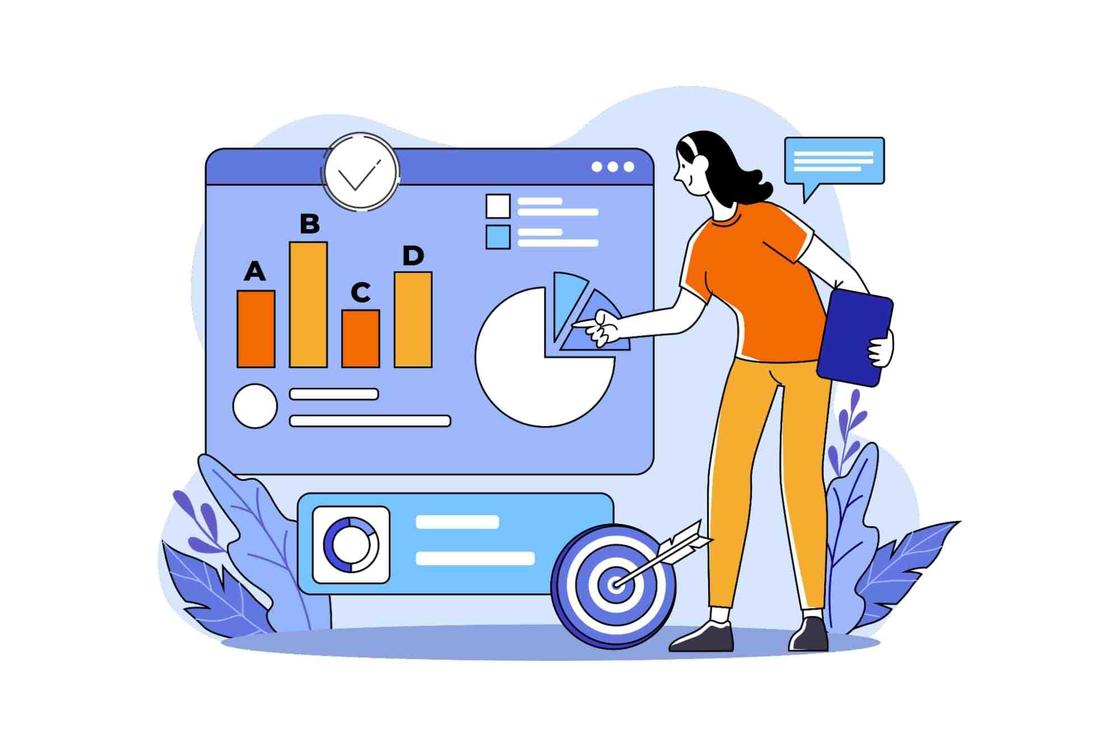
PPC campaigns provide you with in-depth customer insights.
PPC provides several advantages over other types of digital and traditional marketing. We’ll explain the top three below.
Immediate Results
Some marketing efforts require time to see results, but that’s not the case with PPC. After you set up a campaign, you can start seeing results immediately since the platform will begin serving ads almost instantly.
It takes a few months to fully optimize a PPC campaign because you need time to collect data. After a few months, you’ll have enough data to refine your campaign and improve your ad bids and keyword/audience targeting.
Cost Effectiveness
PPC is also highly cost-effective compared to other forms of advertising. First, you’re in total control of your budget. You can increase or decrease your ad spend at any time, for any reason.
Secondly, under the PPC model, you only pay when a user clicks on your ad. That means you know someone at the very least saw your ad when you received a charge for a click—which is more than other types of advertising can guarantee.
And finally, you can closely track the performance of your keywords and ads directly. So, with optimizations and the correct PPC campaign implementation, you have a high potential for ROI over time.
In-Depth Customer Insights
Since PPC ads reach a broad audience, you can gain a wealth of in-depth customer insights over time.
You can see how users respond to your ad and the demographics of the people clicking your ad. This data gives you valuable insight into your target audience and core customer base. You can take these findings and apply them to other marketing efforts and your business as a whole.
PPC vs. Other Types of Digital Marketing
After reading about those benefits, you may want to jump head-first into the PPC pool and devote your entire budget to Paid Search Ads. Although highly effective, they aren't the only essential part of HVAC digital marketing.
The strongest digital marketing strategies balance both paid advertising (PPC) and organic efforts (SEO and content marketing). These organic efforts may not drive immediate results, but they set you up for long-term success.
With a strong SEO strategy, customers will still find your website in organic search results, even if you have to reduce your paid search spend due to seasonal demand fluctuations or financial setbacks.
Similarly, solid content marketing educates customers who aren’t quite ready to take action with your company, slowly nurturing them until they are prepared to take the next step. Effective content also increases customer loyalty and builds trust, which is especially important when a prospective customer is considering a big-ticket service like an HVAC installation.
Now that you understand how PPC fits into the wider digital marketing picture, we’ll share how you can get started with PPC.
How to Get Started With HVAC PPC
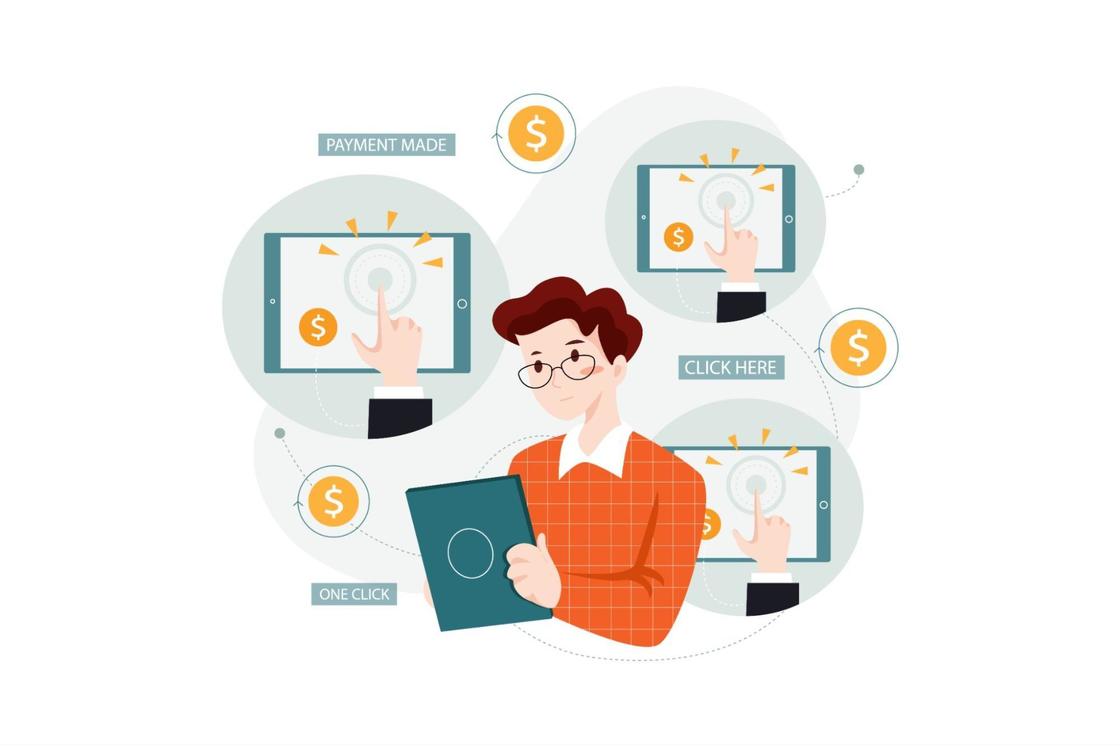
Learn how to build a PPC campaign for your HVAC business.
We’ll walk you through the steps to running your own PPC campaigns.
Establish a Clear Goal
Every effective PPC campaign starts with a specific goal. Start by looking at your current marketing strategy and thinking of ways that PPC can help fill in any gaps.
Below are some common PPC goals you might consider:
- Growing brand awareness
- Generating leads
- Increasing sales
- Boosting traffic to your site
- Retargeting customers who didn’t take action initially
Choose a PPC Platform
Depending on your goal, you’ll need to choose where to advertise. Let’s say your main objective is to drive brand awareness. In that case, you might consider a social media platform like Facebook or YouTube.
On the other hand, if you want to increase traffic to your site or gain more leads, you’ll want to set up a paid search campaign on Google.
Set a Budget
Next, you must establish a clear budget for what you’re willing to spend.
New PPC marketers often ask us, “What is a good PPC budget?” Well, the answer depends. You’ll want to dig in and do some research.
In paid search, for example, your budget will depend on the keywords you want to target. Typically, keywords with high competition will cost more per click. The cost varies from a few dollars to $100+ depending on the ad location and potential value per click for the advertising platform. Most small to mid-sized HVAC companies allocate $9,000 to $10,000 per month for their PPC campaigns.
Tools like Google’s Keyword Planner will help you see the cost of different keywords and estimate your campaign spending.
Build the Campaign
Once you set your budget, it’s time to build the campaign, which is often the hardest part for new PPC marketers.
To create your ads, you'll need to craft compelling ad copy that will entice customers to click your ad. You’ll also need to optimize your landing pages, which is where you’re driving customers to your site, to facilitate conversions.
After you create the ads, you’ll need to set up the parameters for the campaign in Google Ads (or whichever platform you choose). You can set location targeting, audience demographics, the devices you wish to target, and much more.
Learn more about Google Ads in our blog, “How Can I Use Google Ads to Close More Leads?"
Measure Results and Optimize
Finally, your PPC campaign is ready to launch. But the work isn’t finished after the ads start running.
You’ll need to regularly monitor the campaign to see how it’s performing and make adjustments accordingly. To do so, you’ll need to be familiar with metrics such as:
- Impressions
- Click-through rate (CTR)
- Conversion rate
- Cost per acquisition (CPA) or cost per lead (CPL)
- Quality score
Looking at these metrics and making the necessary adjustments to improve them will help your PPC ads perform better, ultimately giving you a higher ROI.
Why You Should Partner With an HVAC PPC Agency
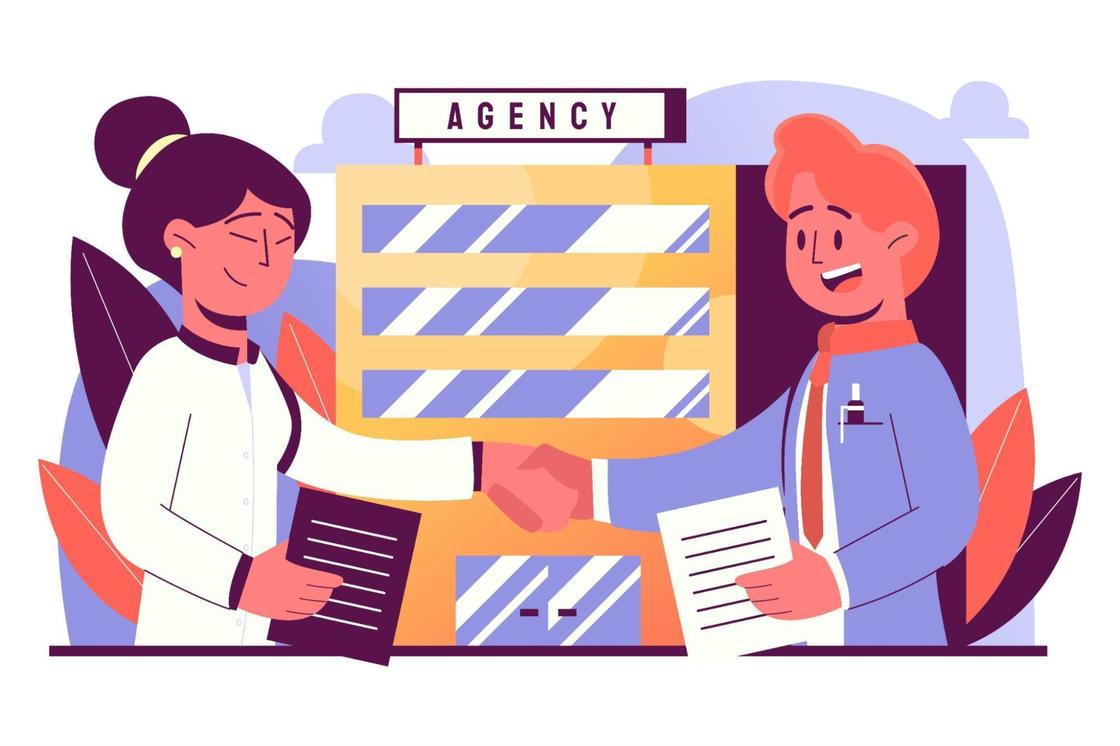
Partner with an experienced PPC marketing agency for your campaigns.
As you can tell from the steps above, setting up a successful PPC campaign requires a lot of time, especially if you’re a beginner. And as a marketer or business owner, you have other aspects of your business that require your attention and time. After all, PPC is just one piece of the marketing puzzle.
For the best results, we recommend partnering with a digital marketing agency. Partnering with an agency fluent in PPC ensures your campaigns will be set up correctly and optimized to give you a high return on your ad spend.
While many agencies offer PPC services, you’ll want to choose one that works primarily or exclusively with HVAC companies. These agencies will already know how to develop profitable PPC campaigns for your industry, fast-tracking your company's ability to quickly and cost-effectively achieve business goals. We also know how to integrate directly with platforms such as ServiceTitan, which you may already have implemented on your website.
Ready to Partner With HVAC PPC Pros? Contact Rocket Media!
With nearly 20 years of HVAC marketing experience for nationwide HVAC companies, we have the know-how to create successful PPC campaigns for your business. Our full-service team can help with every step of the process, from writing ad copy to launching and managing campaigns.
Learn more about our PPC services and why other HVAC businesses choose us for their PPC needs. Call us today at (800) 339-7305 or book a free consultation below.

